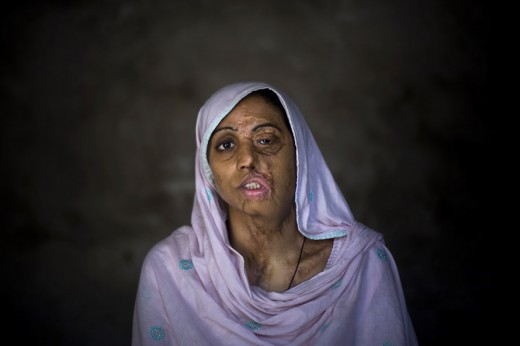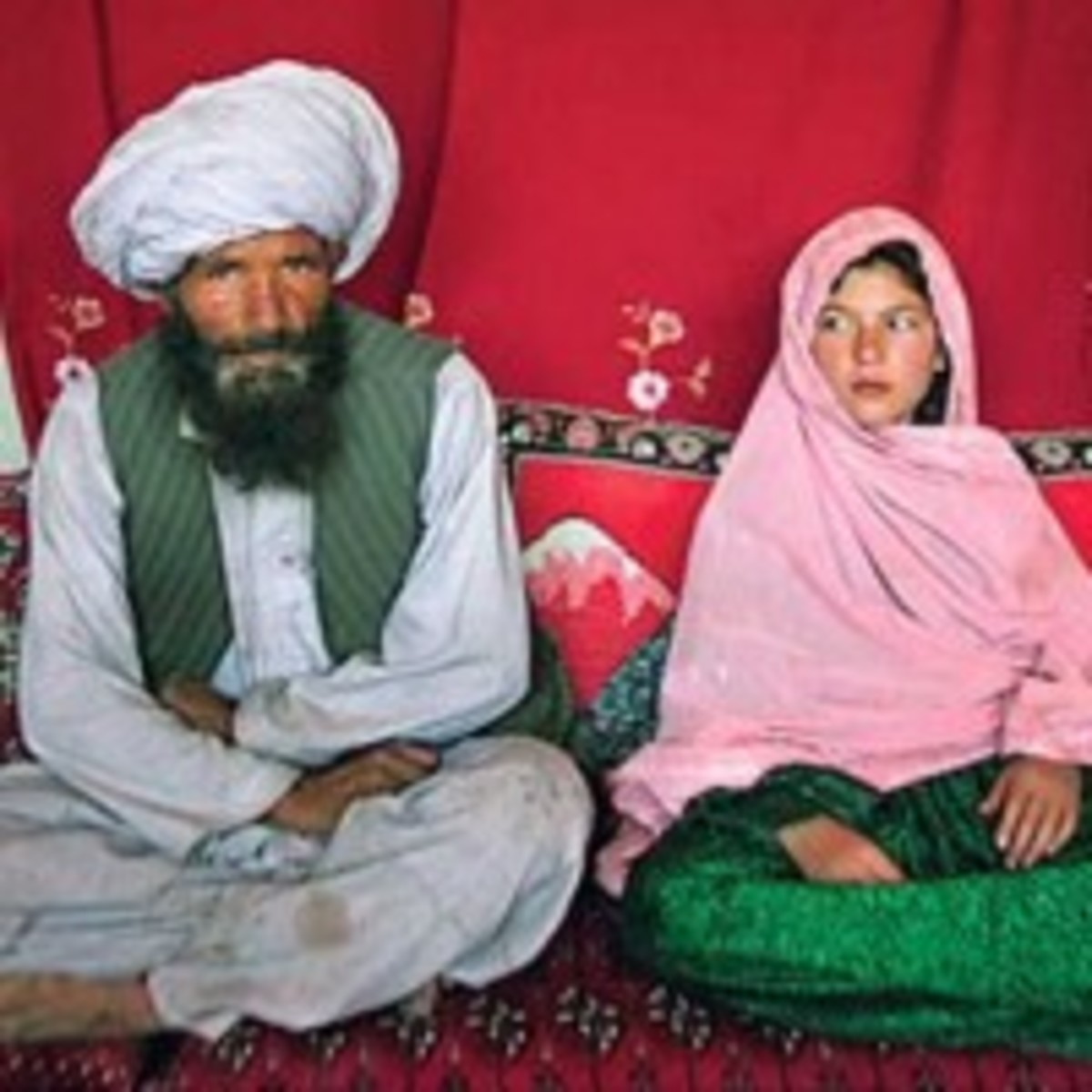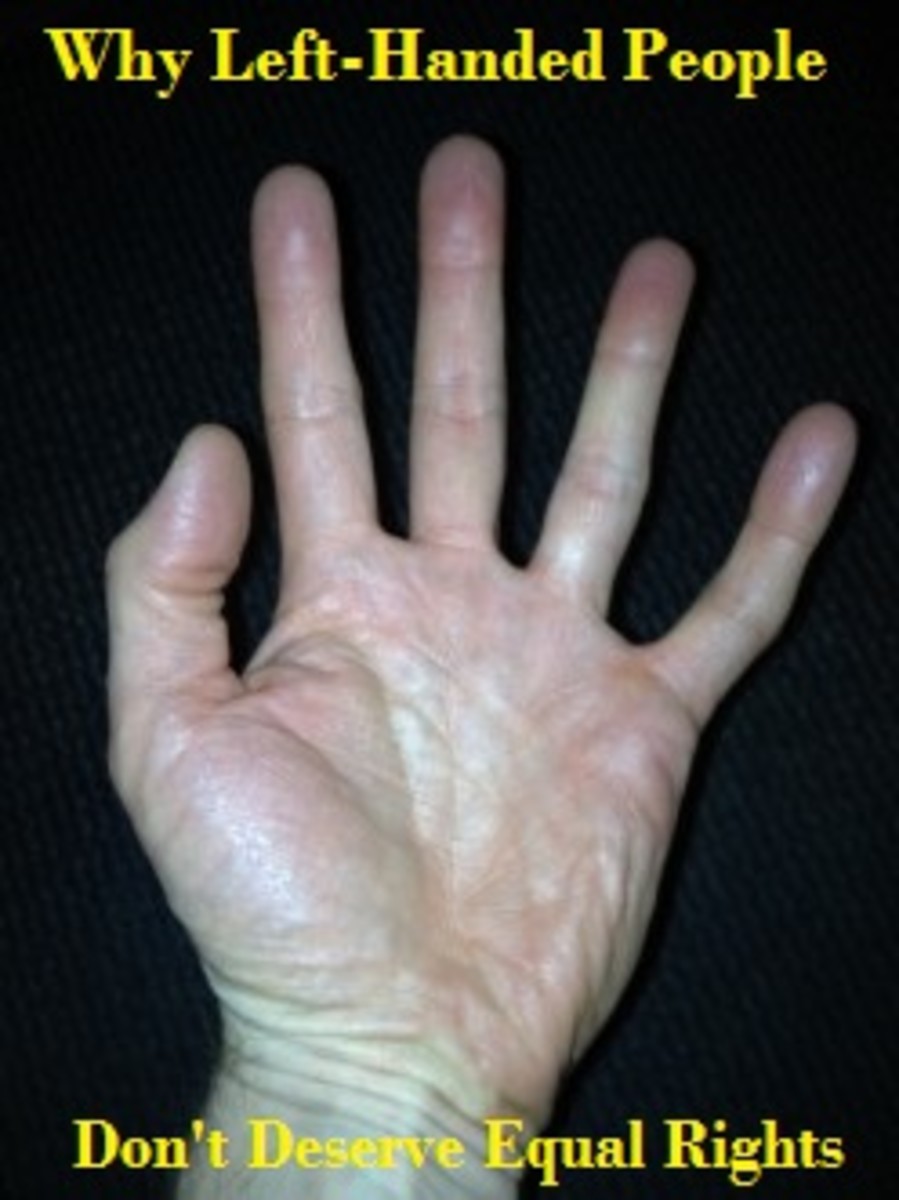Honour Killings and Forced Marriage - A UK Perspective
Survivor of Honour Attack

Teaching in Multi-Cultural Schools
Every Child Matters in London Schools
Teaching in London schools can be a huge challenge. Expectations for standards are high and rightly so; yet at the same time, our pupils often face a number of potential barriers to their learning which must be tackled. Poverty or deprivation; pupil mobility, and high levels of pupils with English as a Second or Additional language are just some of the challenges which schools face.
I currently work in a typical London borough. Our schools are very multi-cultural, many have up to 99% of pupils who speak a language other than English as their first language. In the last ten years, we have seen a steady influx of pupils from other countries, many of whom have never been to school in England before and are not able to speak English when they arrive.
Having worked in such schools for almost fifteen years, I have met some truly amazing and awe- inspiring children and families. I have learnt so say hello in Swahili, Hindi, Japanese, Polish, Croatian, Japanes, Somali, Arabic and a least another 30 more languages.
I have eaten international food at fetes and celebrations and been fed meals by kind-hearted mothers from every corner of the globe.
I have shared and grown in my understanding of many different cultures and religions and am extremely glad to have been given the opportunity to learn so much about life and people.
On a more serious note, I have encountered many pupils suffering from extreme poverty and hardship, neglect or abuse and supported many families through bereavement; divorce and seperation, chronic illness, accidents and injuries, domestic violence, drug and alcohol abuse and many other human tragedies.
It is incredibly distressing for any trained professional to deal with some of the issues I have raised above but it is equally important for us to be equipped with the right tools to help us support children and young people through such difficulties.
What is even more important is that we are able to help recognise when pupils are in need, at risk or in grave danger.
Children who are suffering from abuse or neglect often fail to learn or thrive in school and will often need additional help in order to help them to learn effectively.
It is extremely difficult, if not impossible, for pupils to learn if they do not feel safe and secure. How can a child begin to think about learning if their mind is filled with fear and anxiety? How can any child reach their true potential if they are not supported to learn, especially when they face incredibly difiicult domestic situations? Who will help them cope?
In response to this need and following the inquiry into the death of Victoria Climbie, The Childrens Act 2006, brought the Every Child Matters agenda in the forefront for all those who work with children and young people.
It secures Every Child's right to:
Stay Safe
Lead a Healthy Lifestyle
Enjoy and Achieve at school
Achieve Economic Well Being
Make a Positive Contribution
It aims to ensure that all agencies who work with children and young families work towards the five outcomes above to ensure all pupils reach their true potential.
Awareness of Domestic Violence and Forced Marriages
Victims from London
One such case was a Miss Nazir, who was brutally murdered in her own home by her brother and cousin. Her brothers young children were present at the time of her death.
How many more families are suffering from domestic violence or abuse?
How many parents, carers and children live in fear or danger?
"In all actions concerning children, whether undertaken by public or private social welfare institutions, courts of law, administrative authorities or legislative bodies, the best interests of the child should be the primary consideration"
United Nations Convention on the Rights of the Child,
The Forced Marriage Act
Each year hundreds of men and women in England and Wales are forced into marriage by members of their family against their own will. Some are sent to other countries. Others are brought into the country from overseas. Often, they suffer abuse at the hands of their husband or wife and new in-laws. Many of these victims are children.
In 2008 the Forced Marriage (Civil Protection) Act was passed in Parliament. Its statutory guidance, "The Right to Choose" lays out the the Executive responsibilities of those who work for agencies which handle cases of forced marriages.
The Government has subsequently published, "Multi-agency Practice Guidelines: Handling Cases of Forced Marriage" (2009). It provides useful guidance for front line workers such as doctors, police officers, teachers, health professionals or social workers.
The Forced Marriage Unit (FMU) is a joint initiative between the Home Office and the Foreign and Commonwealth Office. Last year (2009), they dealt with 1682 cases. They offer extensive guidance and support for victims and their families.
The Department for Children Schools and Families in conjuction with the FMU have produced some useful materials for use in schools.
- Forced Marriage - awareness raising materials - Every Child Matters
- IKWRO
The Iranian and Kurdish Women's Rights Organisation provides support and advocacy for speakers of Kurdish, Arabic, Farsi, Dari and Turkish in cases of forced marriage, honour-based violence or domestic violence.
UK Victims of Honour Attacks
There have been a number of high profile cases in the UK in recent years. Hot Spot areas include London, The West Midlands, Lancashire and West Yorkshire.
August 2010 - Gul and Bezum Wazir, from West Midlands. Parents shot in Pakistan after a planned marriage between their daughter and a Pakistani man is called off.
August 2010 - Abdullah and Aysha Mohamed - Couple Murdered in Honour Killing Arson Attack, Blackburn, Lancashire. Four men convicted of murdering an innocent couple when they threw a petrol bomb through the letter box of the wrong address in honour killing attack. The bomb was intended for the property of a man who was having an affair with one of the attackers married sisters.
April 2010 - Facebook Acid Attack. Awais Akram of Leytenstone, London, was left disfigured after acid attack. He had had an affair with a married woman he met on Facebook.
2007 - Banaz Mahmoud from Mitcham in London. Father and uncle convicted of her murder, after she fell in love with a man whom her family did not approve.
2006 - Miss Nazir, Southall, London. Killed at family home by her brother and cousin, with two young chidren present. She had rejected numerous suitors lined up by her family and had fallen in love with an asylum seeker from an unsuitable background, with whom she had held a five year secret relationship.








